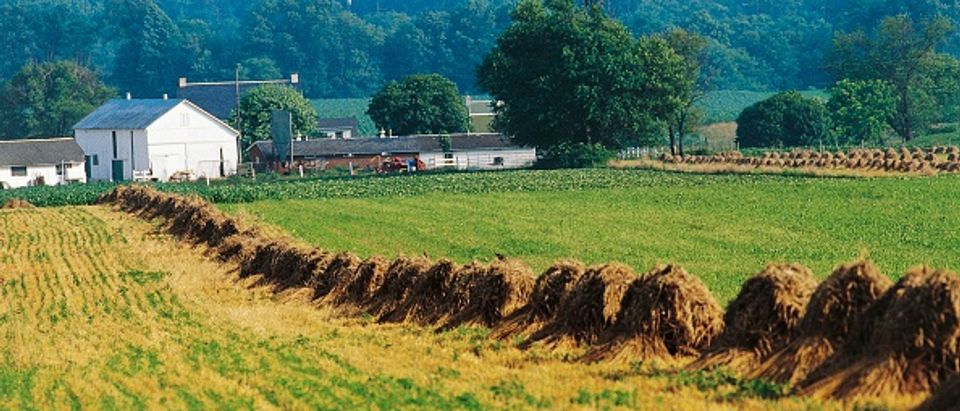Congress is set to pass an appalling farm bill that increases subsidies rather than reforms them. A conference committee is finalizing details on the budget buster bill, which will spend about $900 billion over 10 years on farm subsidies and food stamps.
These farm payments would come on top of the $12 billion or so in subsidies President Trump is already handing out to farmers to offset the damage of his trade war.
Farm subsidies transfer income upwards, harm the economy and the environment, and are unfair to taxpayers footing the bill. They should be repealed. Like other businesses, farm businesses should provide their own safety nets by using market-based financial tools and saving during the good years. U.S. agriculture would thrive without subsidies, as it has in subsidy-free New Zealand.
This year’s farm bill has been exposed as a pork-fest by agriculture scholars at both conservative and liberal think tanks, including the Heritage Foundation and the Environmental Working Group (EWG). Heritage’s expert, Daren Bakst, is calling the bill a “nightmare” and a “disaster.”
Alas, mainstream news stories are not reflecting what a scandal the farm bill is. Indeed, news stories usually show a weird deference to agriculture businesses not shown to businesses in other industries.
Meanwhile on Capitol Hill, the farm lobbies have most members in their pockets, so there will be little opposition to passage. Congressional leaders are planning to pass a final bill before the end of the year and send it to President Trump, who will probably sign it.
The farm bill is likely to modestly increase dairy subsidies, crop subsidies, sugar subsidies, loan subsidies, and other handouts. The bill won’t include the administration’s proposals to reduce farm subsidies for the wealthiest farmers. And it won’t include a proposal by Senator Chuck Grassley to tighten up the rules on payment limits for the largest farms.
Furthermore, the farm bill won’t include tighter work requirements for food stamps that House Republicans sought. And it won’t do anything about the $15 billion a year of food stamp subsidies that pay for junk food such as cola and candy bars.
Republicans often claim to oppose wasteful spending, but this legislation is set to pass in a majority GOP Congress. Democrats say they are concerned about income inequality, but most of them support farm subsidies even though the payments mainly go to large and wealthy businesses.
Despite the lower crop prices of recent years, USDA data show that farm household incomes were still 32 percent higher than average U.S. household incomes in 2017. That data is for all farm households, but most subsidies go to the richest farmers. About 60 percent of crop subsidies from the three main farm programs go to the largest 10 percent of farms. In recent decades, the high-end concentration of farm subsidies has increased.
Democrats worried about inequality should also know that farm subsidies are not really subsidies to farmers, but mainly subsidies to landowners, and those are often different people because half of all U.S. cropland is rented. Farm subsidies inflate cropland prices because expected future subsidies are likely “capitalized” or reflected in prices today.
Even aside from that landowner effect, many farm payments go to people who don’t even live on farms because of loopholes in the system. EWG’s Scott Faber estimates that about 20,000 “city slickers” are getting payments from Trump’s current farm bailout package.
Finally, Democrats may be interested that many farm businesses pay very little income tax. If farmers paid a lot of tax, they might argue they were covering the costs of the subsidies they receive. But that is not the case.
The farm bill is an embarrassment. The lead House Democrat on the farm bill is Minnesota Rep. Collin Peterson, who said the other day that insiders didn’t want the bill’s details known before passage because “There’s concern on some of the members’ part that when people find out what’s in the bill it will start unraveling.”
Is there any good news? This year’s farm bill will apparently legalize hemp growing. That is a step toward free markets, but how long before the hemp farmers are lining up for subsidies from Washington?
Chris Edwards is editor of the Cato Institute‘s “Downsizing Government” project, which seeks to enhance personal freedom, increase prosperity, and leave a positive fiscal legacy to the next generation.
The views and opinions expressed in this commentary are those of the author and do not reflect the official position of The Daily Caller.


